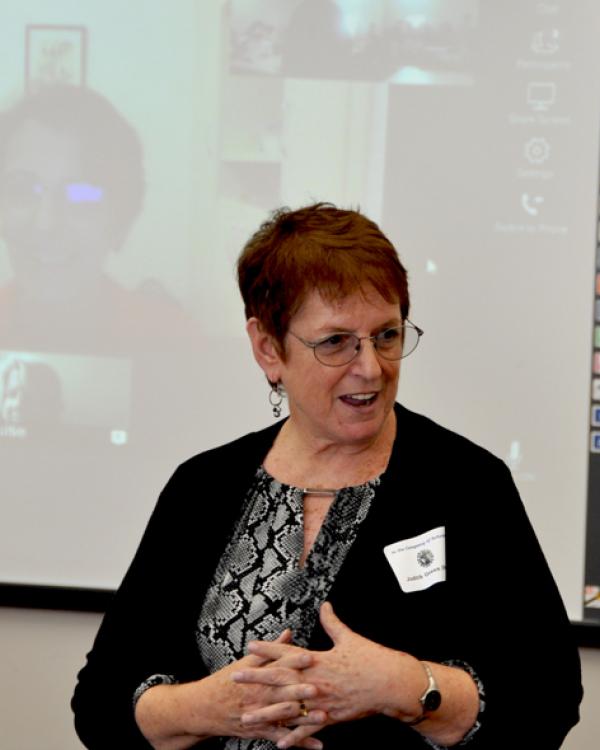
Judith Green, distinguished professor emeritus of UC Santa Barbara’s Gevirtz School, will give the presentation “Interactional ethnography and multimodality: Issues of epistemology, logic of enquiry and analysis” on Friday, November 12 at 7 am PST. The talk is presented by The Visual and Multimodal Research Forum, whose MULTIMODALITY TALKS Series is a joint initiative for researchers across the world who are interested in multimodality. It aims to provide a platform for dialogue for advancing multimodal research across disciplines.
To sign up for the Zoom presentation, one must register online first. The session will consist of a 45 minutes pre-recorded presentation, followed by a live discussion with Professor Green.
In this talk, Professor Judith Green will make transparent how and in what ways, when and where, theoretical perspectives from multimodality have informed Interactional Ethnographic (IE) studies in and across complex and linguistically, socially, and academically diverse educational programs. Interactional Ethnography is an epistemological logic-of-inquiry grounded in theories of culture as a verb; that is, in the making and interactional sociolinguistics. This perspective was initially developed to understand ways of understanding and tracing the developing opportunities for learning in educational spaces and how these spaces support and/or constrain opportunities for learning. As part of this process, the ethnographer engages with, and records the ways that participants in and across times and cycles of activity, interactionally construct (or not), ways of engaging with spoken, visual, and social texts that shape what counts as socially, linguistically, and culturally being accomplished.
By (re)constructing the theoretical and epistemological decisions and actions of the IE researcher(s) in two IE guided studies, one in a medical/dental setting and one in a bilingual setting (Grade 5), Professor Green lays a foundation for a dialogue about how and in what ways IE as a logic-of-inquiry and analyses can inform, and be informed by, theories of multimodality. In the dialogue with participants, Professor Green seeks to provide a ground for identifying what, when and how these two traditions can be brought together to create empirically grounded ways of constructing warranted accounts of the lived experiences of participants in the social spaces.
Judith Green is a Distinguished Professor Emeritus from UC Santa Barbara’s Department of Education. Her research focuses on developing ways of exploring social, cultural, communicative (discursive) and academic processes constructed in formal and informal educational spaces. The following question underlies her research from a video-enabled ethnographic and discourse analytic research, she and her colleagues frame as Interactional Ethnography: How do theories guiding our research shape questions, epistemological decisions and processes that guide our research as we seek deeper theoretically grounded understandings of classes (and other social spaces) as cultures-in-the-making?
MULTIMODALITY TALKS Series is a joint initiative for researchers across the world who are interested in multimodality. It aims to provide a platform for dialogue for advancing multimodal research across disciplines. Multimodality draws attention to how meaning is made through the combined use of semiotic resources such as gesture, speech, face expression, body movement and proxemics, (still and moving) image, objects, sound and music, writing, color, layout, and the built environment. MULTIMODALITY TALKS Series is organized by The UCL Visual and Multimodal Research Forum, the University of Leeds Multimodality@Leeds and Insulander/Svärdemo Åberg at the Department of Education, Stockholm University. It is conceived of working as a tandem with the Bremen-Groningen Online Workshops on Multimodality to make the best of the online format to offer multiple chances for sharing research and stimulating discussions on multimodality worldwide.